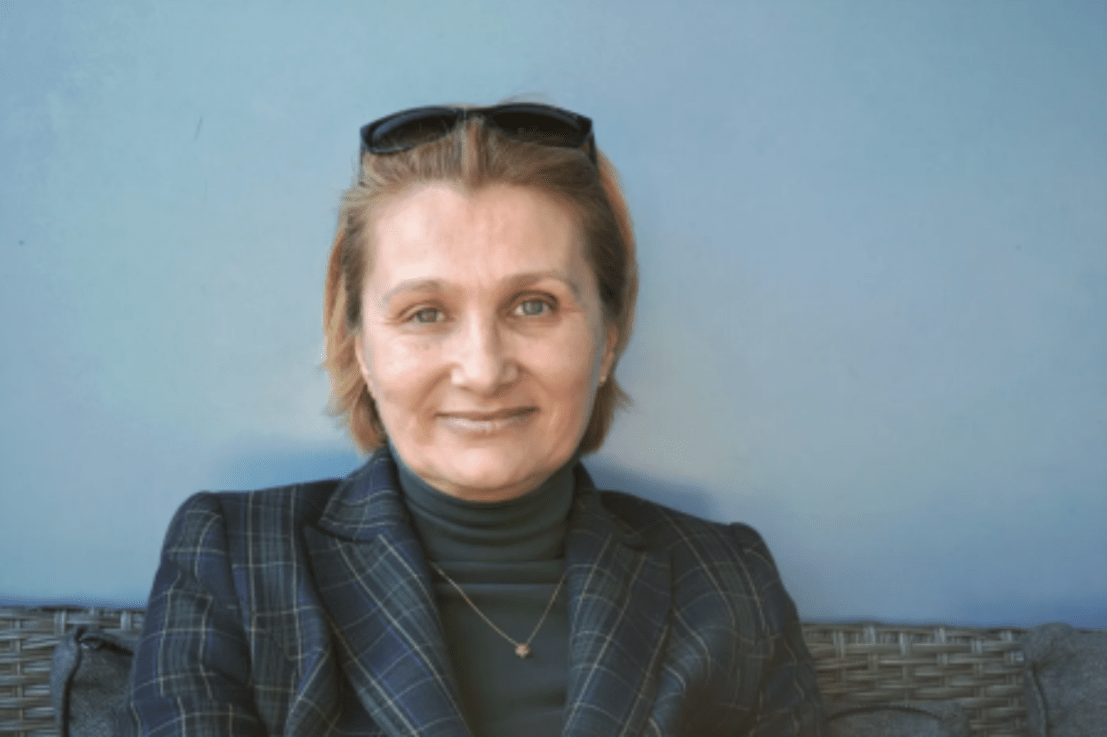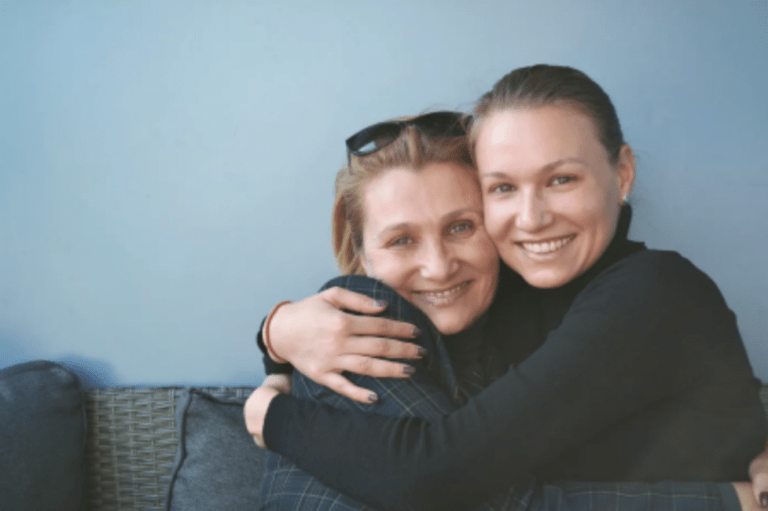Medicine
When I was a little girl, I hated going to the doctor. The white cabinet. Doctors with scrubs. The long, never ending corridor, full of people. And its smell. The smell of a hospital. Disease. Questions. Tears. Fear. An endless fear.
Standing in line for more than an hour, my feet cold, and my head heavy on my shoulders, my grandmother used to tell me, “The doctors will look at you and prescribe the right medicine to make you feel better.” The pain will stop. And she was right. It eventually did. She always used to take me to the hospital whenever I did not feel good. She was my true medicine. And she still is, until this day.
But not everyone has their own medicine to take care of them. Some people wait too long before they are prescribed one. Long enough before their body sends them the disturbing signals. And you feel you are not okay. Your body speaks to you in an unfamiliar and frightening way.
It is time to go and see a doctor. It is time to take care of yourself.
. . .
Breast cancer is the most common cancer in the world. According to the American Cancer Society, it accounts for 12.5% of all new annual cancer cases worldwide. It primarily affects women. However, men can also develop breast cancer.
Every 20 seconds in the world, a woman is diagnosed with breast cancer.
In 2020 in Bulgaria, 25% of women with diagnosed cancer have breast cancer.
. . .
Exactly 20 years ago, 30 years-old Rositza Temelkova found something unusual on her breast. The first, terrifying signal. She was not okay. She had breast cancer.
“Before that, I did not know anything about breast cancer,” says Rositza, with her green eyes staring directly at me.

Rositza Temelkova. Photo taken by Simona Simeonova.
Her life was beautifully simple. At 21, Rositza and her husband had their first and only child, Elina. Four years later, at 25, Rositza successfully graduated with Bulgarian Philology in Blagoevgrad, and she found herself a job as a teacher. Every day, she came across the difficulties that we all encounter in our lives. Problems at work, arguments in the family, small, insignificant things. The usual and yet, sometimes exhausting, normality.
“A little before I found out, my sister left for the United States. I was afraid I was never going to see her again.” Her father was also suffering from an illness at the time of her diagnosis: “I felt stressed all the time. I let my body and mind relax when things looked better for him.”
This was when Rositza got sick.
A risk factor is anything that increases a person’s chances of getting a disease, in this case — breast cancer. There exist three main factors of breast cancer.
1. Being born female
2. Getting older
3. Inheriting specific gene changes passed on from a parent Rositza falls into the first category. She is a woman.
After going to see a doctor and receiving the news, Rositza’s life became like a movie. Everything happened too fast, and every second mattered. Doctors advised her that she needed to get surgery right away. “My husband is a doctor. He was crying all the way from the hospital in Sofia. I did not feel it was happening to me,” Rositza says. They had to tell their daughter, which she considers the most challenging thing until today. On the same day she returned from the hospital, Rositza knew she had no time to waste and gathered all her girlfriends.
“I did not know whether I would wake up after the surgery. I was not aware of what was coming. I was crying.” Everyone thought she was crying from happiness because she was expecting a second child. Some of her friends did not want to believe her when she told them the news. Before leaving the café, Rositza told her friends: “Please go and check yourselves first thing on Monday.”
Rositza had an invasive ductal carcinoma (IDC). Invasive means that cancer has spread into the surrounding breast tissue. Ductal carcinoma is the most common type of breast cancer. About 80% of all breast cancers are invasive ductal carcinomas. Depending on how much cancer has grown or spread, some women’s breasts might have to be removed. Rositza was told she would wake up from surgery without a breast. Fortunately, only this
time, the doctors were wrong. It turned out the cancer was smaller than they were expecting.
However, this was only the beginning of Rositza’s journey in the fight against breast cancer. “I had to accept that one can live with cancer. This experience pushed me out of my comfort zone. My whole life and my family’s changed.”
. . .
The surgery was over. Now was the time for her and her doctors to plan her treatment which generally has two primary purposes:
1. Destroy the cancer cells
2. Reduce the risk of breast cancer coming back in the future (known as recurrence)
She started with what are called “traditional therapies.” Rositza went through chemotherapy and radiation therapy.
According to the American Cancer Society, chemotherapy is most often used when referring to medicines or drugs that treat cancer. However, not all drugs used to treat cancer work in the same way. Traditional chemotherapy uses cytotoxic drugs. In other words, they can kill tumor cells.
Radiation therapy may be used alone or with other treatments, such as surgery, chemotherapy, and hormones. The therapy itself uses high-energy particles or waves — x-rays, gamma rays, and electron beams which destroy or damage cancer cells.
Cells grow and divide to form new cells. However, cancer cells are not like most normal cells — they grow and divide faster. The idea behind radiation is to make small breaks in the DNA inside cells. These breaks make the cells die.
But when one has cancer, it is not only the body that needs treatment. The soul is suffering too. Rositza’s friends advised her to go and see a psychologist. “On the one hand, medicine was taking care of my body, and the psychologist was looking out for my soul,” Rositza says.
During this time, there were moments of hardships and many sleepless nights.
Rositza has promised her daughter, Elina, that she will stay alive. However, she could not hide from her the side effects of the disease and the treatments.
. . .
According to breastcancer.org, which provides educational information written by science writers and health journalists, there exist 84 different breast cancer side effects.
Hair loss and vomiting were one of the many that Rositza had to face. This bothered her family a lot, to the point when she had to chase them out of the room. One day, Elina played out with a friend, who told her it was wrong to have fun while her mother was dying at home. When Rositza found out about that, her response was utterly human. She told Elina, “Tell your friend to talk to her mother and get herself checked.”
And so, it began. One woman to another.
Rositza wished she could help other women in her condition or who were at risk of breast cancer. Make them feel like they are not alone. Understood. Seen. But first, she wanted to get better and, most importantly, look better,
as she said. “My wish was to return to my natural look and for my hair to grow. I wanted the women to trust me and not see me as a sick person.”
And then, little by little, day by day, Rositza was healing. She was winning the fight against breast cancer. And just like that, one day in 2004, she was ready to start an association for women with breast cancer in Blagoevgrad. The important thing for her was to help different women by sharing her experience and letting them know they were not alone in this fight. And that it will get better. They joined forces and started working together.
“I was apprehensive how the women might get to know each other and talk about their illness,” Rositza shares. However, a couple of minutes after entering the room, they all talked to each other as if they had been friends for years. Some women even showed and compared their breast implants. They all felt comfortable in an environment where they could be around women going through the same thing.
Unfortunately, many women from the association have passed away over the years. Some of them were unimaginably young. Rositza shared an example of a woman who got sick at 21 and died at 23.
“Nowadays, more people get sick at an early age. When a person is young, they do not consider getting regular check-ups or even assume they might be sick. And that is normal.”
Breast cancer can sometimes be felt. You can find it and recognize it as long as you know how.
According to the American Cancer Society, the following unusual changes in the breast can be a symptom of breast cancer:
1. Swelling of all or part of the breast
2. Skin irritation or dimpling
3. Breast pain
4. Nipple pain or the nipple turning inward
5. A lump in the underarm area
However, many breast cancers do not have any apparent symptoms at all. Sometimes, a lump is too small for a person to feel or to cause any unusual changes that one can see on their own. This is the role of the screening mammogram (or X-ray of the breast) from where the abnormal area becomes visible.
Doctors suggest that performing a regular breast self-exam is the best way for a woman to notice any changes in her breast.
“It is a matter of health culture,” says Rositza. She shared that her sister, currently teaching in the US, has to perform all kinds of medical tests to start the academic year.
And I wonder why this is not the case in Bulgaria.
Why are we not talking about it as much?
Years back, after starting to love the interaction with the women from the organization, Rositza became one of the founders of another organization — The Association of Patients With Oncological Diseases (APOZ), with headquarters in Sofia, Bulgaria. She and her colleagues began to travel around cities in the country and taught school students how to perform a physical examination.
“We had a briefcase inside which we carried silicone models that imitated female breasts. In several places, the breasts had cancerous formations.”
The kids were interested, and they were asking questions. They were eager to learn more. At the end of the day, this was one of the things that made Rositza happy. She was able to teach others and pass her experience to them. With the hope that one day, this might save their life. Or someone else’s life.
Almost 21 years have passed since Rositza found out she had breast cancer.
Today, having won the battle with the disease, she is living her life day by day, appreciating everything she has. “Everything changes when you have cancer. You start seeing the world differently, and your values shift. You look above things and at life and everything around you.”

Rositza with her daughter Elina. Photo taken by Simona Simeonova.
Today, the association in Blagoevgrad no longer works. Rositza and the other women could not manage to handle the expenses themselves. But they keep in touch. “We are sisters by destiny,” Rositza smiles. And most
importantly, they share their stories. They talk about breast cancer and what it is like to have breast cancer. The uncomfortable truth. The one we don’t like hearing. The one that one day might turn out to be your medicine.
. . .
I would like to dedicate this story to my grandmother — Iliika Aykova. A special thank you to Rositza Temelkova for telling her story. American University in Bulgaria. Social Issues Journalism 2022.